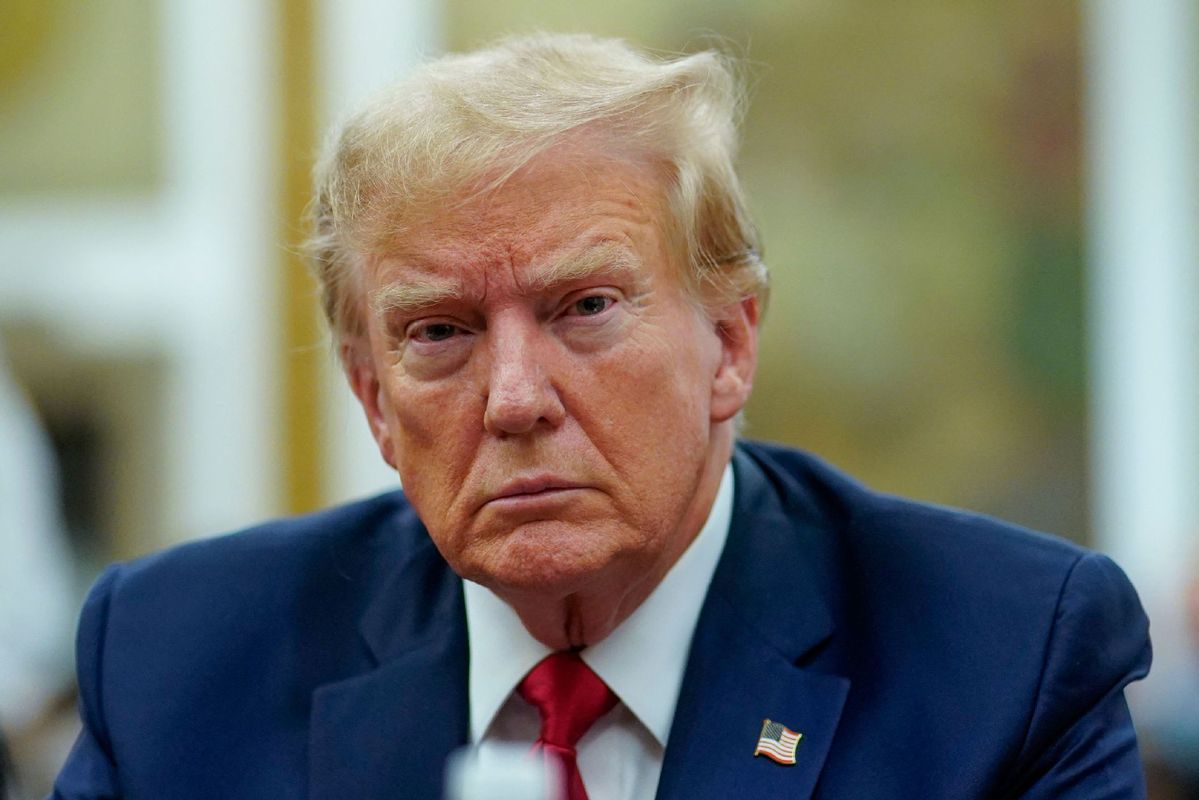Appeals court: Trump can be prosecuted


A federal appeals panel ruled Tuesday that former US president Donald Trump can face trial on charges that he plotted to overturn the results of the 2020 election, rejecting his claims that he is immune from prosecution.
Tuesday's ruling had been expected because of the skepticism that the three-judge panel of the US Court of Appeals in Washington expressed when Trump's lawyers first argued their case before the panel last month.
They claimed then that any act by a president can't be prosecuted unless the president is first impeached by the House of Representatives and convicted in the Senate.
The appeals court gave Trump until Monday to file an emergency stay request with the Supreme Court to block its ruling.
If the high court decides to hear the case, it could be several more weeks or months before a decision is made.
Steven Cheung, a spokesman for Trump's campaign, said the former president "respectfully disagrees" with the decision and would appeal it.
"If immunity is not granted to a president, every future president who leaves office will be immediately indicted by the opposing party," Cheung said. "Without complete immunity, a president of the United States would not be able to properly function."
Trump' attorneys had argued that if future executives believed that they could be indicted for their "official acts" as president, they would be more hesitant to act within their role.
But the judges rejected that claim.
The panel wrote: "The risks of chilling presidential action or permitting meritless, harassing prosecutions are unlikely, unsupported by history and ‘too remote and shadowy to shape the course of justice.' We therefore conclude that functional policy considerations rooted in the structure of our government do not immunize former presidents from federal criminal prosecution."
A spokesman for Jack Smith, the special counsel who brought the case against Trump, declined to comment on the court's decision.
Smith is seeking to prosecute Trump this year, and the Republican front-runner for the presidential nomination is seeking to delay it until after the November election.
If Trump defeats President Joe Biden, he could presumably try to use his position as head of the executive branch to order a new attorney general to dismiss the federal cases he faces or potentially could seek a pardon for himself.
In its 57-page ruling, the panel dismissed Trump's arguments that his efforts during the final months of his presidency to undo his loss, including by promoting false claims of voter fraud, fell within his official duties and that he was immune from prosecution on criminal charges.
The judges — two appointed by Biden and one appointed by former president George H.W. Bush — said in their unanimous decision that despite the privileges of the office he once held, Trump was subject to federal criminal law like any other American.
"We cannot accept former President Trump's claim that a president has unbounded authority to commit crimes that would neutralize the most fundamental check on executive power — the recognition and implementation of election results," the judges wrote. "Nor can we sanction his apparent contention that the executive has carte blanche to violate the rights of individual citizens to vote and to have their votes count.
"Former president Trump's stance would collapse our system of separated powers by placing the president beyond the reach of all three branches," they wrote. "Presidential immunity against federal indictment would mean that, as to the president, the Congress could not legislate, the executive could not prosecute, and the judiciary could not review. We cannot accept that the office of the presidency places its former occupants above the law for all time thereafter.
"For the purpose of this criminal case, former President Trump has become citizen Trump, with all of the defenses of any other criminal defendant. But any executive immunity that may have protected him while he served as President no longer protects him against this prosecution."
Tuesday's ruling is the second time since December that judges have held that Trump can be prosecuted for actions taken while in the White House and in the run-up to the Jan 6, 2021, attack on the US Capitol.

































